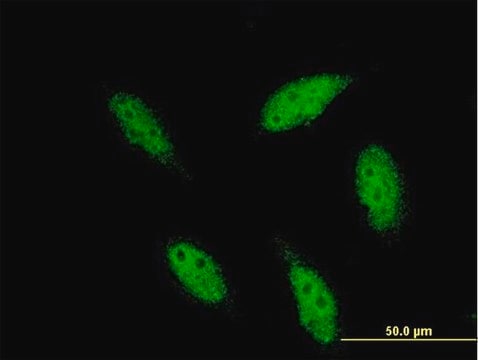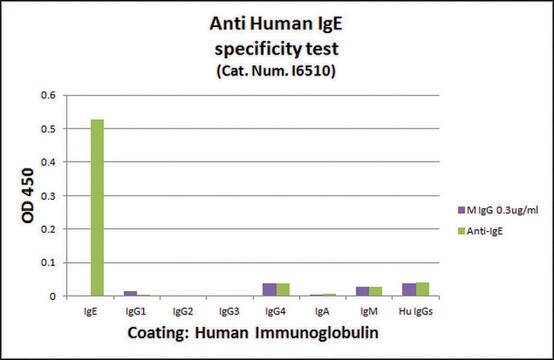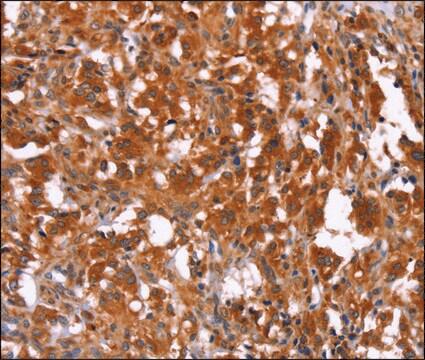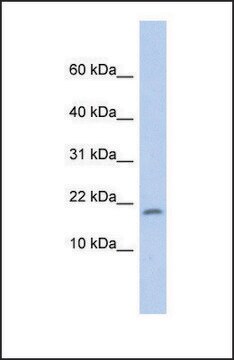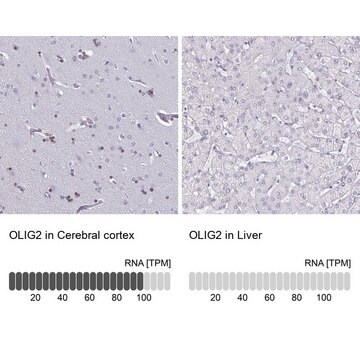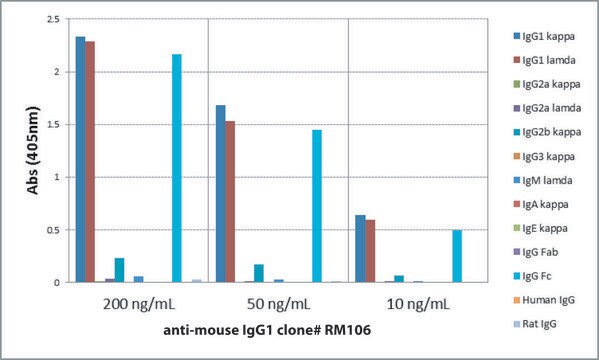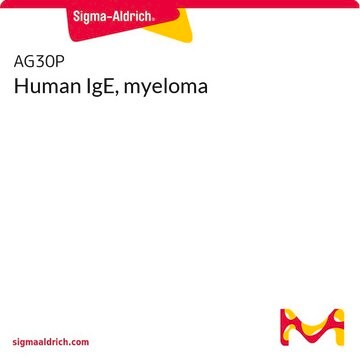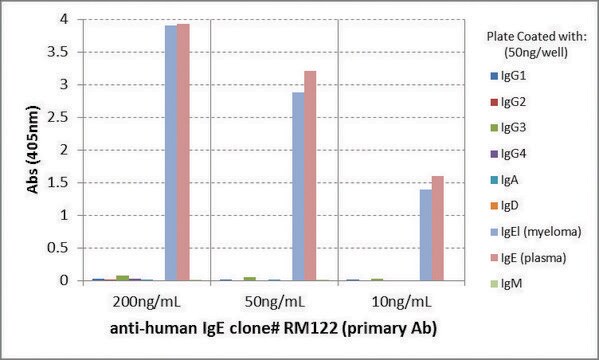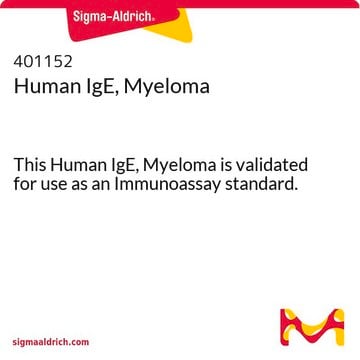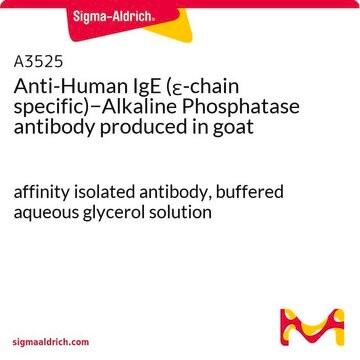SAB4200741
Anti-Human IgE antibody, Mouse monoclonal
clone GE-1, purified from hybridoma cell culture
Synonym(s):
Anti-Immunoglubulin E
About This Item
Recommended Products
biological source
mouse
Quality Level
antibody form
purified from hybridoma cell culture
antibody product type
primary antibodies
clone
GE-1, monoclonal
form
buffered aqueous solution
species reactivity
human
concentration
~1.0 mg/mL
technique(s)
ELISA: 0.15-0.3 μg/mL using 1 μg/mL Human IgE myeloma for coating
immunoblotting: suitable
immunoprecipitation (IP): 1-2 μg/test using Human IgE myeloma
isotype
IgG2b
shipped in
dry ice
storage temp.
−20°C
target post-translational modification
unmodified
General description
Immunogen
Application
Biochem/physiol Actions
Physical form
Not finding the right product?
Try our Product Selector Tool.
Storage Class Code
10 - Combustible liquids
Flash Point(F)
Not applicable
Flash Point(C)
Not applicable
Regulatory Listings
Regulatory Listings are mainly provided for chemical products. Only limited information can be provided here for non-chemical products. No entry means none of the components are listed. It is the user’s obligation to ensure the safe and legal use of the product.
JAN Code
SAB4200741-100UL:
SAB4200741-BULK:
SAB4200741-VAR:
Certificates of Analysis (COA)
Search for Certificates of Analysis (COA) by entering the products Lot/Batch Number. Lot and Batch Numbers can be found on a product’s label following the words ‘Lot’ or ‘Batch’.
Already Own This Product?
Find documentation for the products that you have recently purchased in the Document Library.
Customers Also Viewed
Our team of scientists has experience in all areas of research including Life Science, Material Science, Chemical Synthesis, Chromatography, Analytical and many others.
Contact Technical Service